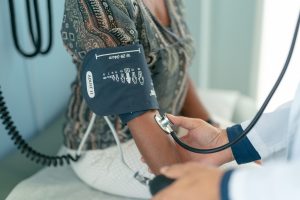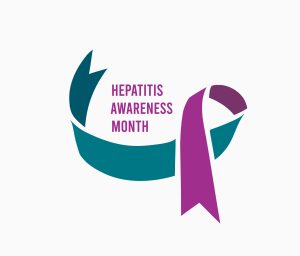 May is Stroke Awareness Month. During this time, Flushing Hospital Medical Center is working to educate our community about important stroke facts that can help prevent stroke deaths and increase the likelihood of positive treatment outcomes for our patients.
May is Stroke Awareness Month. During this time, Flushing Hospital Medical Center is working to educate our community about important stroke facts that can help prevent stroke deaths and increase the likelihood of positive treatment outcomes for our patients.
When looking for warning signs of a stroke, it’s important to B.E.F.A.S.T. If someone you know is suddenly exhibiting the following signs, call 911 for help immediately:
B – Balance loss: A person experiencing a stroke might suddenly lose their balance.
E – Eye problems: When someone experiences a stroke, they may experience temporary vision loss.
F – Face drooping: If one side of the person’s face is drooping, ask them if their face feels numb and ask them to smile. You should be concerned if they are unable to smile or their smile is uneven.
A – Arm weakness: Does the individual’s arm feel numb or weak? Ask them to raise both arms and watch to see if one arm drifts downward.
S – Speech difficulty: If the person is trying to speak and they are difficult to understand or their speech is slurred, ask them to say a simple sentence repeatedly.
T – Time to call 911: You should never wait more than five minutes to call 911 if someone is displaying these warning signs.
A person experiencing a stroke may not experience all of these symptoms, or they may not all occur at the same time. Additionally, while these are some of the major warning signs to watch for, there are others that are important to recognize as they appear. Additional symptoms of a stroke can include:
- Sudden confusion
- Severe headaches
- Blurred vision
- Dizziness
- Sudden loss of coordination
Stroke is one of the leading causes of death and long-term disability in the United States. Eighty percent of strokes are preventable; by spotting these warning signs and acting quickly, the severity of a stroke can be reduced drastically. Remember, don’t wait; if you believe someone you know is experiencing a stroke, call 911 immediately.
All content of this newsletter is intended for general information purposes only and is not intended or implied to be a substitute for professional medical advice, diagnosis or treatment. Please consult a medical professional before adopting any of the suggestions on this page. You must never disregard professional medical advice or delay seeking medical treatment based upon any content of this newsletter. PROMPTLY CONSULT YOUR PHYSICIAN OR CALL 911 IF YOU BELIEVE YOU HAVE A MEDICAL EMERGENCY.










